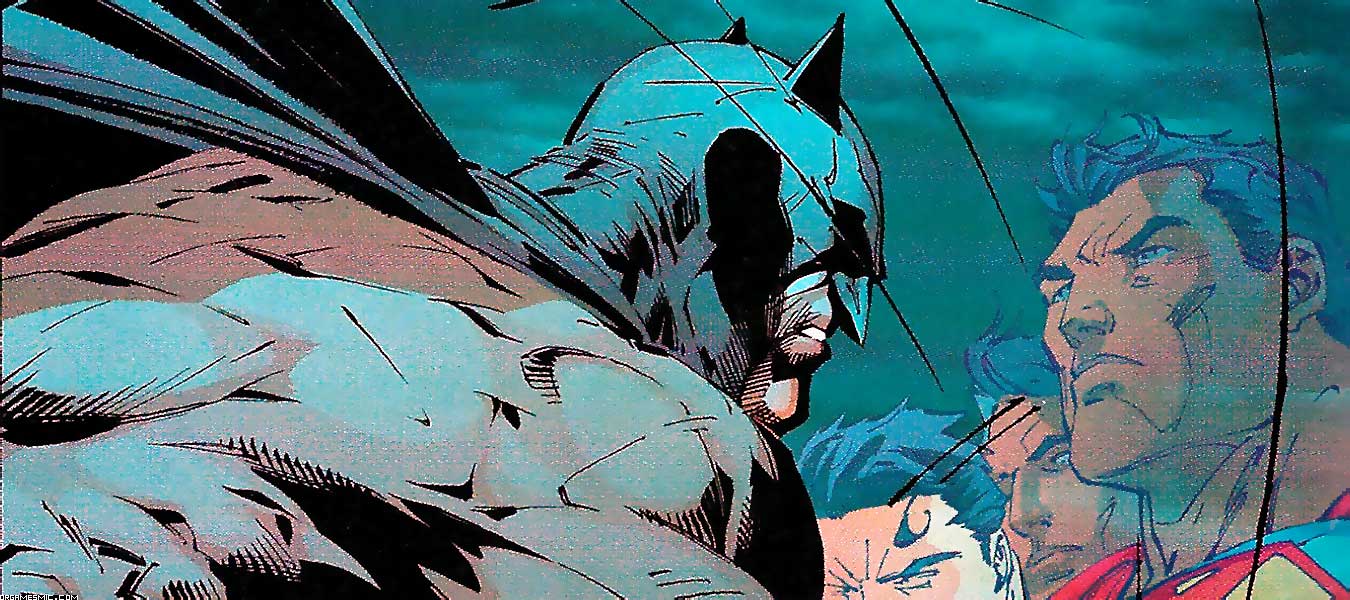This page may contain one or more affiliate links, which means that if you purchase a product through that link, I may receive compensation. The links will be identified with the text "affiliate link". Click to learn more.
It goes without saying that Batman is one of the most popular characters from DC Comics. That being said, Batman’s personality may have a few flaws here and there. Digging a little deeper may make these character traits more clear.
One thing that is hard to argue against his persona is his insecurity compared to Superman. In essence, he is jealous. He has expressed that if he had Superman’s powers, he would make much better use of them. Since Batman is a perfectionist, he prevents anything from slipping through the cracks. Since he can’t be everywhere at once he makes up for it using technology. However if his genius mind were to be combined with Superman’s physical abilities there would be no stopping him.
Batman has the kind of attitude where he won’t give up and won’t settle for mistakes. This could be attributed to witnessing his parents being murdered. Such a deep flaw in the justice system of Gotham is the rampant crime that escalates but never ends. To give up on crime would mean to give up on his parents. As Batman pointed out in The Dark Knight Returns, guns are loud and clumsy. He despises the weapon used to gun down his parents in front of his very eyes. The symbolism of a gun and its association with murder and crime is enough to convince him that it is a archaic tool never to be used, or at least according to Batman’s personality.
He has what is called “Alpha Male Syndrome”. Alpha males (in humans) are so scared of failure that they overcompensate in everything. By staying stern and not flexible, they destroy relationships and trust with other people. To trust someone would mean to allow a situation that he cannot control. Beside being insecure, as previously mentioned, a major Batman character trait and Achilles’ heel is that he pushes himself too much. This can be seen the most during the Knightfall saga. Batman had worn himself out so much that he was no match against the character Bane. It was no surprise when Bane picked him up and snapped his back like a Slim Jim.
Does Batman have any positive traits? Of course. Batman, surprisingly, has a big heart and his compassion is both his strength and his weakness. When Robin gets injured (or killed) he takes it personally. When Robin (Dick Grayson) was shot by the Joker, Batman blamed himself for leading a child into a dangerous situation. At one point, he revealed to Black Canary that he had a secret love.
Batman’s Personality Type
One of the most popular personality tests used today is the Myers-Briggs Type Indicator (MBTI), which classifies individuals into sixteen types based on four dichotomies: Extraversion (E) vs. Introversion (I), Sensing (S) vs. Intuition (N), Thinking (T) vs. Feeling (F), and Judging (J) vs. Perceiving (P).
Batman’s personality type is INTJ, which stands for Introverted, Intuitive, Thinking, and Judging. The Architects or the Masterminds are what people call them because they have a strategic and analytical approach to everything and are visionaries. They work alone, but they can be trusted as they are always confident in their abilities, self-motivated, and open to improvements. They are also rational, logical, and objective with a clear view of how things should be. They can seem aloof, unemotional, and arrogant to others who fail to appreciate their rich inner life.
There are a number of reasons why Batman is considered an INTJ, and they include the following:
- He is said to be an introvert, which means that he likes to be in his mind, concentrating on his own ideas or thoughts instead of dealing with society and people. He is a loner and enjoys working by himself, not getting any help from others, relying only on what he has achieved through his resources. Moreover, he cherishes privacy and independence and tends to cut off ties with others, even if they are his confederates. He does not display much emotion, nor is he given to showing feelings openly.
- He is intuitive, that is to say he pays more attention to the overall situation instead of getting caught up in the details. He’s got vision; he can see patterns, relationships, and possibilities that others might not even notice. He’s an idea generator, always coming up with creative solutions and thinking outside of the box. In addition to being futuristic and idealistic, he knows what he wants in the long run and how to bring positive change to the world.
- He is a thinker, meaning that he tends to make decisions based on logic rather than emotions. He is analytical and objective; he relies on facts and evidence to support his views or actions. He is also critical and skeptical of everything, challenging assumptions. He highly values skillfulness and effectiveness and strives for perfection in whatever he does. Additionally, he is pragmatic and realistic; in any given situation, he selects the most efficient course of action based on available evidence.
- He judges and has a preference for structure and order rather than flexibility and spontaneity; he is organized, following plans and schedules that he sets for himself.

